Welcome to the CLUSTER Symposium 2020!
When: CANCELLED UNTIL FURTHER NOTICE
About CLUSTER
CLUSTER (Consortium Linking Universities of Science and Technology for Education and Research) is a consortium of 12 elite European universities in science and engineering (and architecture) with associate members from around the world. CLUSTER represents a Multi-location European University of Science and Technology with about 3.000 professors, 11.000 academic staff, 14.000 PhD students, and a total of over 140,000 students.
Highlighted Speakers
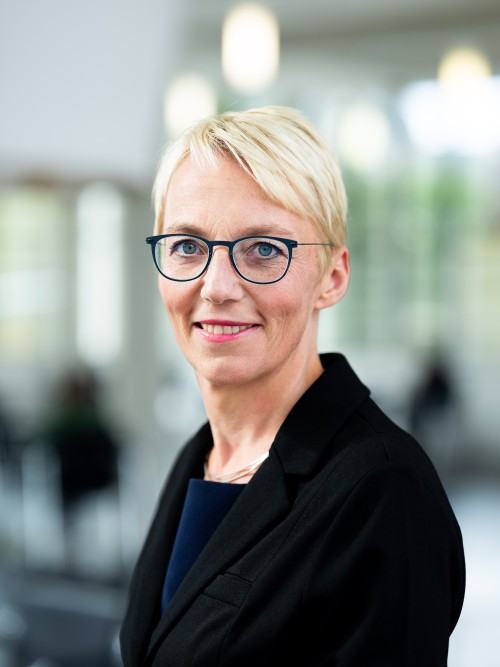
Tanja Brühl
President of Technische Universität Darmstadt and CLUSTER
Prof. Dr. Tanja Brühl is president of Technische Universität Darmstadt, as well as acting president of the CLUSTER consortium. Before coming to Darmstadt in October 2019, she was professor of political science (2007-2019) and vice president of academic affairs (2012-2018) at Goethe University Frankfurt.
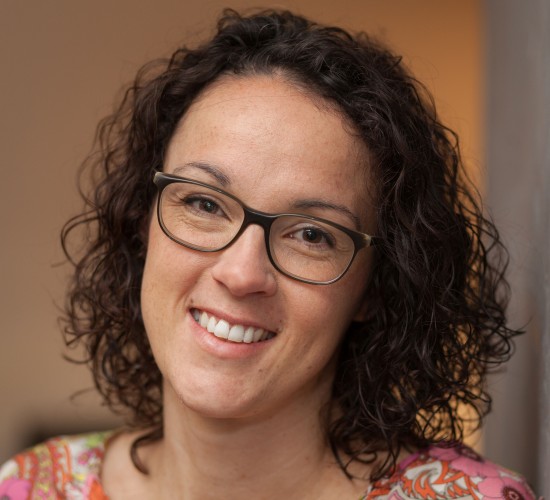
Angela Dorn
Minister of Science and the Arts, State of Hesse
Angela Dorn is acting Minister of Science and the Arts of the State of Hesse. A psychologist by training, Dorn has been active in local and state politics for the party Bündnis 90/DIE GRÜNEN since 2006. In 2009, she became a member of the State Parliament of Hesse. From 2017 to 2019, she was chair of Bündnis 90/DIE GRÜNEN in Hesse.
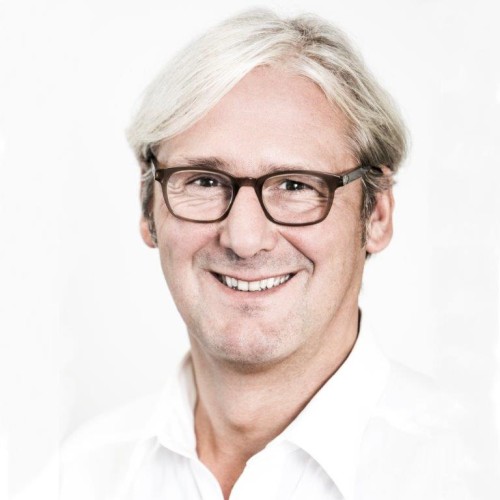
Jochen Partsch
Lord Mayor of Darmstadt
Jochen Partsch was elected Lord Mayor of Darmstadt in 2011 and reelected in 2017. He began his political career as a member of Bündnis 90/DIE GRÜNEN in 1997 and has been actively involved in the administration of Darmstadt since 2006. From 2004 to 2006, he lectured at the Darmstadt University of Applied Sciences (h_da). Partsch holds a degree in Social Economics.
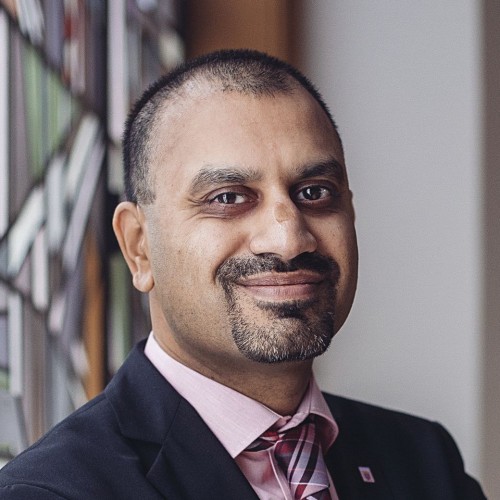
Joybrato Mukherjee
President of the DAAD and Justus-Liebig-Universität Gießen
Joybrato Mukherjee is president of the German Academic Exchange Service (DAAD) (since 2020) and Justus-Liebig-Universität Gießen (since 2009). In addition to various administrative positions, he has served JLU Gießen as professor for English linguistics since 2004. He joined the DAAD as vice president in 2012 and remained in this position until he was elected president in 2019.
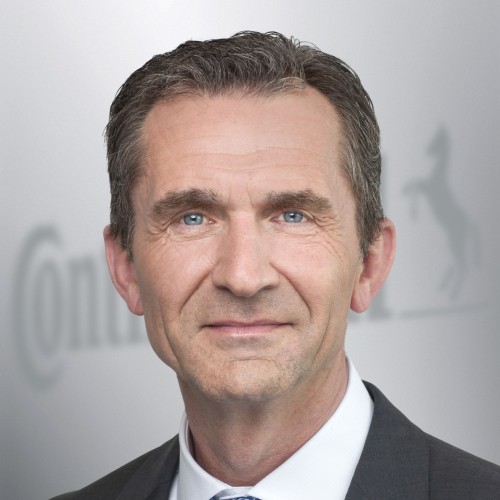
Rainer Hetzer
Senior Vice President, Human Relations Member of the Management Board, Business Area Autonomous Mobility and Safety at Continental AG
Rainer Hetzer began his career in 1992 at ITT Automotive in Frankfurt after obtaining two law degrees from Julius-Maximilian-University Würzburg. He transferred to the US in 1996, where he held several Executive HR positions at ITT Automotive Headquarters and, after its take-over, Continental. He returned to Germany in 2004 as Senior Vice President, Human Relations, Continental Division Automotive Systems. In 2007, he became Senior Vice President, Human Relations of the Business Area Autonomous Mobility and Safety of Continental. His main tasks include leading and shaping people policies and employee relations for currently around 50,000 people worldwide.
| Time | Event | |||
|---|---|---|---|---|
| 08:00 |
[Registration / Coffee] Poster Exhibition of CLUSTER Projects and Student Projects |
|||
| 09:00 |
Opening of the Conference and Welcome Address By CLUSTER President Tanja Brühl |
|||
| 09:10 |
Welcome Address By Minister of State of Hesse Angela Dorn |
|||
| 09:20 |
Welcome Address By Lord Mayor of Darmstadt Jochen Partsch |
|||
| 09:30 |
Welcome Address By DAAD President Joybrato Mukherjee |
|||
| 09:40 |
Introduction of Key Note Speaker By CLUSTER President Tanja Brühl |
|||
| 09:45 |
Key Note Address “Engineering Employability: A Joint Venture between University and Industry” By Rainer Hetzer, Senior VP Human Relations at Continental AG |
|||
| 10:25 | Q & A | |||
| 10:35 |
[Coffee Break] Poster exhibition |
|||
| 11:00 |
Parallel Sessions: The Future of Engineering Education I (Abstracts below) |
|||
| Science and Technology Education: Economic and Societal Impacts | The Universities of the Future: Transnational Policies for Higher Education | Teaching Sustainability in Engineering Education | Joint Education Programs: Added Value, Employability, Challenges and Future Developments | |
| 13:00 |
[Lunch Break] Poster exhibition |
|||
| 14:00 |
Parallel Sessions: The Future of Engineering Education II (Abstracts below) |
|||
| Co-Creation and the Role of Students in preparing Education to the Challenges of the Future | Joint student Mobility Programs: Added Value and Future Aims and Challenges | Innovative Teaching and Learning Methods | Industry-University Relations and their Impact in Education | |
| 16:00 |
[Coffee Break] Poster exhibition |
|||
| 16:30 |
Plenary Discussion “University Networks' Impact on Future S&T Education in Europe and the World” (More info below) |
|||
| 17:30 | Inauguration of the CLUSTER Student Representatives' Network | |||
| 18:00 | Closing Remarks | |||
| 18:15 | End of Symposium | |||
| 20:00 | CLUSTER Gala Dinner (by invitation only, guests invited to the CLUSTER Gala Dinner have to register via the internal link that has been sent to you or can be requested here) | |||
The following abstracts are subject to change.
Science and Technology Education: Economic and Societal Impacts
How can engineering education impact our society and economy? How can engineering education have an impact on regional growths and local economies? How can engineering education stimulate entrepreneurship and creative technology application for a better wellbeing of all groups in our society?
During the first part of the session these aspects will be treated at the level of bachelor studies (USE courses to connect technology and society), master degrees (entrepreneurship bringing science and technology to the society) and PhD research in engineering (translating research into innovation). In the second part an interactive round table will elaborate on the future role of science and technology for our society.
Session Programme (opens in new tab)
The Universities of the Future: Transnational Policies for Higher Education
The harmonization of higher education systems has been a major global trend, in particular in Europe. However, new challenges arise from international partnerships. Understanding educational climates at universities with different national background can bring convergence of education policies for the benefit of increasingly diverse students in university classrooms. The goal of this session is to debate and learn about existing efforts and tendencies of higher education policies in important regions of the world. We seek to identify similarities and differences, conver-gences and divergences, and to discuss how we can shape existing efforts to integrate them.
Session Programme (opens in new tab)
Teaching Sustainability in Engineering Education
Universities of Science and Technology play a crucial role in preparing students to address sustainability challenges, including Sustainable Development Goals. This session discusses new course contents and ways of teaching related to sustainability, sharing experiences from leading experts in the field. We will also examine how the learning outcomes related to sustainability are being formulated, assessed and communicated.
Session Programme (opens in new tab)
Joint Education Programmes: Added Value, Employability, Challenges and Future Developments
Double Degrees were developed at the beginning of the 90s by pioneering academics and have constantly evolved over the years until they became a crucial component of the internationalization policies of most Higher Education Institutions in Europe and beyond. The importance of these initiatives was confirmed by the creation of the Erasmus Mundus programme by the European Commission in 2003 which both institutionalized the process, increased the number of initiatives exponentially and provided for the first time specific funding for running the activities. Nevertheless, no comprehensive studies on the performance of Double Degree alumni have ever been carried out on a multi-country level and from a multi-stakeholder perspective. The REDEEM project, which was carried out by a subset of the CLUSTER members, tackled this gap. The project represented the first attempt to describe through a quantitative and qualitative analysis, what is the added value of double degrees and joint programmes, what is the typical profile of the graduates, what are their expectation and perceived impact, what is the opinion of the employers, etc. A follow up project (REDEEM 2) is currently further developing the concept and provides a comparative analysis of a new survey on recent graduates that allowed us to identify differences in expectations and perceptions in terms of geographical origin, socio-economic background, type of programme, field of study, etc.
This information is at the core of the session and will be crucial for the double degree/joint programme developers to better understand the specificities of joint programmes in their own environment and act accordingly when designing new programmes.
Co-Creation and the Role of Students in preparing Education to the Challenges of the Future
This session will center on co-creative approaches to teaching and learning in Higher Education (HE) that allow students to interact and work collaboratively with educators. It investigates roles and possibilities of students’ feedback, opinions, and other resources such as their intellectual capabilities and personalities, integrated alongside institutional resources, that arise as many higher education institutions are facing new diversity issues as well as opportunities.
We would like to offer a brief overview on some virtual examples of co-creation within the Cluster’s network.
Session Programme (opens in new tab)
Joint Student Mobility Programmes: Added Value and Future Aims
As a facilitator for internationalisation strategies, Joint or Double Degree Programmes (JDDPs) are not only interesting, but also bring challenges for national HE systems. In this session, information about JDDPs and examples of good practices will be presented. Participants will be provided with information about the concept of JDDP as a tool in the internationalisation of HE, and as a possible way of increasing quality, attractiveness and competitiveness.
Session Programme (opens in new tab)
Innovative Teaching and Learning Methods
The session will start with presentations of a wide variety of innovative teaching and learning technologies and methodologies. The talks deal with virtual reality (VR) and open source technology, virtual exchange programs between partner universities, students solving tasks in interdisciplinary teams, and train the teacher in a way that they can awaken enthusiasm among students for technical issues.
After the presentations, all participants will actively be involved to discuss the influence these new methodologies and technologies have on the organization as a whole and the student and teacher specifically. Among other questions: Does the use of new technologies influence the skills teachers need to adapt to these new technologies? Which social skills are necessary to train the student to face the societal challenges of the future?
Session Programme (opens in new tab)
Industry-University Relations and their Impact in Education
All CLUSTER universities have close ties with industrial partners regarding research and teaching activities. With reference to reviewing and discussing current education approaches and industry needs, this session will address questions regarding future engineering education and research. The following three phases will be in the focus of the discussion: Pre-study phase: How can we make technical engineering attractive to excite the young generation? Study phase: How can we jointly define education goals with industry to foster employability of graduates in the industrial AND the academic field? Where are the limits? Post-graduate-phase: How can industry profit from scientific research at all technology readiness levels (TRL) ?
| University Networks' Impact on Future S&T Education in Europe and the World | |
|---|---|
| Panelists | |
| Prof. Dr. Tanja Brühl | President of Technische Universität Darmstadt, CLUSTER and UNITE! |
| Dr. Dorothea Rüland | Secretary General of the German Academic Exchange Service (DAAD) |
| David Bohmert | Secretary General of CESAER |
| Gwenaelle Guillerme | Secretary General of T.I.M.E. |
Registration has been closed.
Conference Fee
- General: 100 €*
- Students (currently enrolled): free
To finalize your registration, please transfer the amount into the following account:
Stadt- und Kreissparkasse Darmstadt
Account-Nr. 704 300 (BLZ 508 501 50)
IBAN: DE 36 5085 0150 0000 7043 00
BIC: HELADEF1DAS
Transfer Reference: Ref. VIII C –CLUSTER- 130 40 115
*Please consult your respective home university, if support is needed.
| Hotel Name | Best Western Plus Plaza Hotel Darmstadt | IntercityHotel Darmstadt | Maritim Hotel Darmstadt | Welcome Hotel Darmstadt | ibis Darmstadt City |
ibis budget Darmstadt City |
|---|---|---|---|---|---|---|
| General Booking Code | CLUSTER Symposium 2020 | |||||
| Booking Deadline | 18.02.2020 | 24.02.2020 | - ended - | 18.02.2020 | 17.02.2020 | 17.02.2020 |

